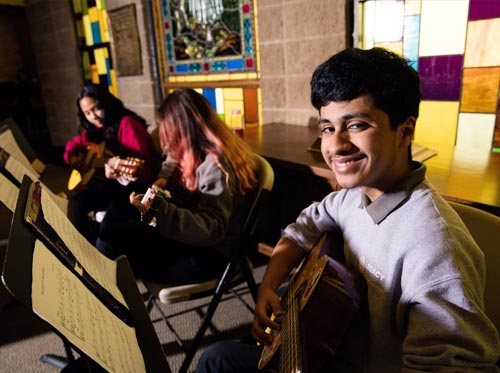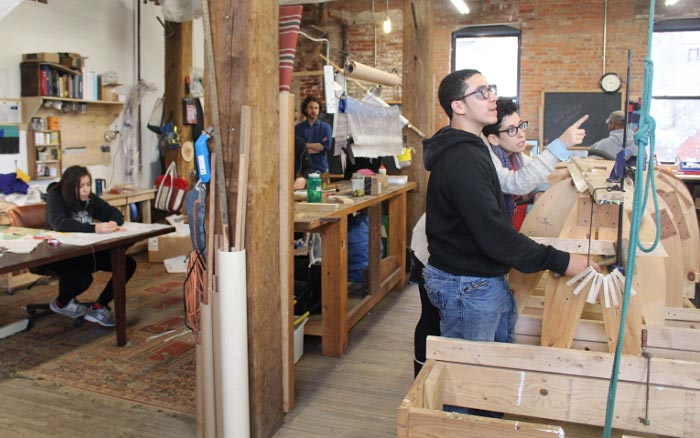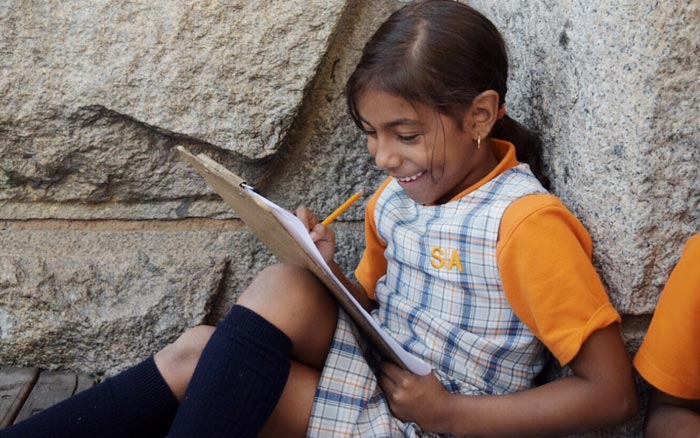
Too often today, learning is disconnected from young people’s day-to-day lives, interests, and goals, as well as a larger purpose that matters to them. Instead it focuses on inauthentic, dated examples and on gaining knowledge and skills in isolation from the real world, reflecting the belief that learners must fully prepare for the real world before taking it on. Additionally, in these contexts, learning often does not help young people make connections to why something is important to their growth and future. If school is going to prepare all learners to thrive in and transform the world, it’s critical that it supports young people’s interests and goals, builds on their prior knowledge and skills, and enables them to tackle personally meaningful, real-world activities.

When learning is truly relevant, it takes into account learners’ day-to-day lives, interests, and who they want to become. Relevance supports learning and development by increasing motivation. This is because learners see more value in learning about topics connected to their interests and goals and, as a result, will be more engaged and invested. In addition, relevance makes what is learned more memorable because young people can connect new ideas to prior knowledge and experiences. Relevance can also help combat any negative feelings, like boredom, young people may feel toward school, by providing the real-world, personally meaningful learning opportunities they crave. When school is relevant to all learners, and leverages high-value curriculums, then every young person has a greater opportunity to thrive.
This Leap Means…
- Learners tackling activities and content that feel compelling and connect to their interests and goals.
- Learners engaging in learning experiences that relate to their lives outside of the classroom.
- Learners working with community and industry partners to complete authentic tasks.
- Learners building on their prior knowledge when engaging in activities.
- Learners grappling with activities and problems that have real-world applications and purposes.
Passion is energy. Feel the power that comes from focusing on what excites you.
Oprah Winfrey
Examples
Big Picture Learning (BPL) (Grades K–12)
BPL’s school design activates deeper engagement in learning by using interest-driven, real-world contexts as its pedagogical foundation. At BPL, every part of a young person’s learning experience, from schoolwork to internships, is informed by their personal interests and by real-world contexts, as the model was founded on the premise that young people should learn by working on “real projects that have a consequence.”

Build UP (Grades 9–14)
Build UP is an early college workforce development model that enables low-income youth to develop career-ready skills while revitalizing their community and gaining homeownership. Learners spend approximately half their time in an academic setting, gaining knowledge that’s directly applicable to their paid apprenticeships in the real estate and construction sectors, and the remaining half learning through other ways, including fieldwork and on job sites.

Career & SEL with a Purpose from nXu (Grades 6–12)
By integrating purpose development, identity, social capital, and career exploration with empowering SEL practices, nXu’s middle and high school curriculum supports learners—and educators—in defining personal and professional pathways that align with their evolving sense of self. This entails regular opportunities to explore their interests, goals, and career pathways; connect with their communities; and solve real problems in authentic contexts.

Project-Based Learning from The Robertson Center at Success Academy (Grades K–4)
Success Academy’s PBL units inspire learners to become experts in a fascinating subject. Through real-world experiences and immersive lessons and activities like field studies, learners develop literacy skills, become strong and curious thinkers, master self-regulation habits and skills, and learn about the world and their community.


